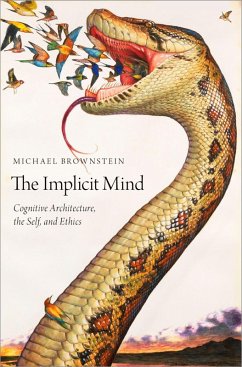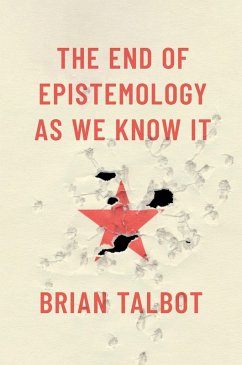
A Wild West of the Mind (eBook, ePUB)
Versandkostenfrei!
Sofort per Download lieferbar
11,95 €
inkl. MwSt.
Weitere Ausgaben:

PAYBACK Punkte
6 °P sammeln!
Can unexpressed thoughts be morally wrong? Are people subject to moral condemnation not only for their malicious, biased, and cruel actions, but also for their private malice, biased beliefs, and ugly fantasies? Although many would answer "yes," George Sher argues in A Wild West of the Mind that none of the main approaches to morality support this view and that to accept it would be to relinquish an essential aspect of our mental freedom. To preserve that freedom, we must allow our beliefs to follow the evidence wherever it leads and must give our private feelings, attitudes, and fantasies fre...
Can unexpressed thoughts be morally wrong? Are people subject to moral condemnation not only for their malicious, biased, and cruel actions, but also for their private malice, biased beliefs, and ugly fantasies? Although many would answer "yes," George Sher argues in A Wild West of the Mind that none of the main approaches to morality support this view and that to accept it would be to relinquish an essential aspect of our mental freedom. To preserve that freedom, we must allow our beliefs to follow the evidence wherever it leads and must give our private feelings, attitudes, and fantasies free rein. As so understood, the realm of the purely mental is a morality-free zone, one within which no thoughts or attitudes are either forbidden or required. Even when our beliefs are irrational or repugnant and our desires reflect badly on our character, it is never morally wrong for us to have them. A Wild West of the Mind advances a provocative thesis of normative ethics and offers a powerful defense of freedom of mind. Broad in scope and tightly argued, the book will have much to offer philosophers working in ethics, free will, and epistemology.
Dieser Download kann aus rechtlichen Gründen nur mit Rechnungsadresse in A, B, BG, CY, CZ, D, DK, EW, E, FIN, F, GR, HR, H, IRL, I, LT, L, LR, M, NL, PL, P, R, S, SLO, SK ausgeliefert werden.













